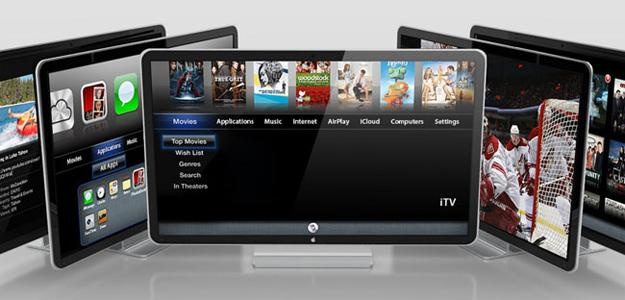Will Apple TV replace your cable box?
 TV has changed dramatically over the years, especially now that major content providers like Sony and Time Warner have fully embraced online streaming as an important revenue source, as an increasing number of users have relinquished their subscription service, in favor of online streaming. HBO Go, for one, is a prime example of the trend, as the service seems very motivated to providing subscribers the same content it offers to cable viewers.
TV has changed dramatically over the years, especially now that major content providers like Sony and Time Warner have fully embraced online streaming as an important revenue source, as an increasing number of users have relinquished their subscription service, in favor of online streaming. HBO Go, for one, is a prime example of the trend, as the service seems very motivated to providing subscribers the same content it offers to cable viewers.
As of late, Apple has been in talks with content providers and programmers, as one of the first tech giants looking to acquire live, linear TV broadcasting rights. Apple’s plan is simple: to deliver the same experience that cable and satellite subscribers get, but on its own terms, with its own hardware and interface.
This is great news for consumers, and terrible news for cable and satellite subscription services, especially since Apple is likely to offer a more flexible range of bundles than the ones available from Comcast or Dish.
Further motivation comes from competitor Google, whose roll-out of Google Fiber is currently underway. A clash between Apple and Google, however, is not likely, as Apple’s focus is on the delivery of the experience, rather than provision of an entirely new infrastructure.
Apple Pay TV?
It takes little effort to imagine a future in which Apple TV breaks from its tiny shell and becomes a service capable of delivering content in a linear fashion. Apple has the cash flow and will to break new grounds.
The biggest hurdle with TV content has always been the inability to stream the same content across all devices. For instance, services like Hulu Plus are not allowed to stream a wide selection of content delivered on a streaming box like Apple TV, as they would on OS X or iOS. Certain shows need to acquire the right to stream on different devices, which limits the options when a streaming box isn’t available.
Apple is likely looking to close that gap by securing system-wide rights to truly broadcast linear television, with no restrictions on what devices subscribers are allowed to enjoy their favorite content.
The resulting effect won’t be different than what subscribers get from their cable or dish service, except that all that is required is one Apple ID.
“...The TV experience sucks...”, commented Apple’s SVP of Internet Software and Services, Eddy Cue, last May “All we have today is glorified VCRs,” he continued, as he spoke at the 2014 Code Conference in Rancho Palos Verdes. At the time, Cue did not reveal anything about Apple’s recent news, but he did give an indication of Apple’s ongoing effort in cracking the TV code.
Such scenario does beg the question: will streaming boxes still be relevant? If Apple TV really does evolve in the direction that we expect, the entire spectrum of streaming devices available, such as Chromecast, Roku, as well as relay services like SlingBox, could rapidly lose traction and eventually disappear, unless they can afford to buy the rights and build their own infrastructure, which leaves Google as the only other company capable of doing it.